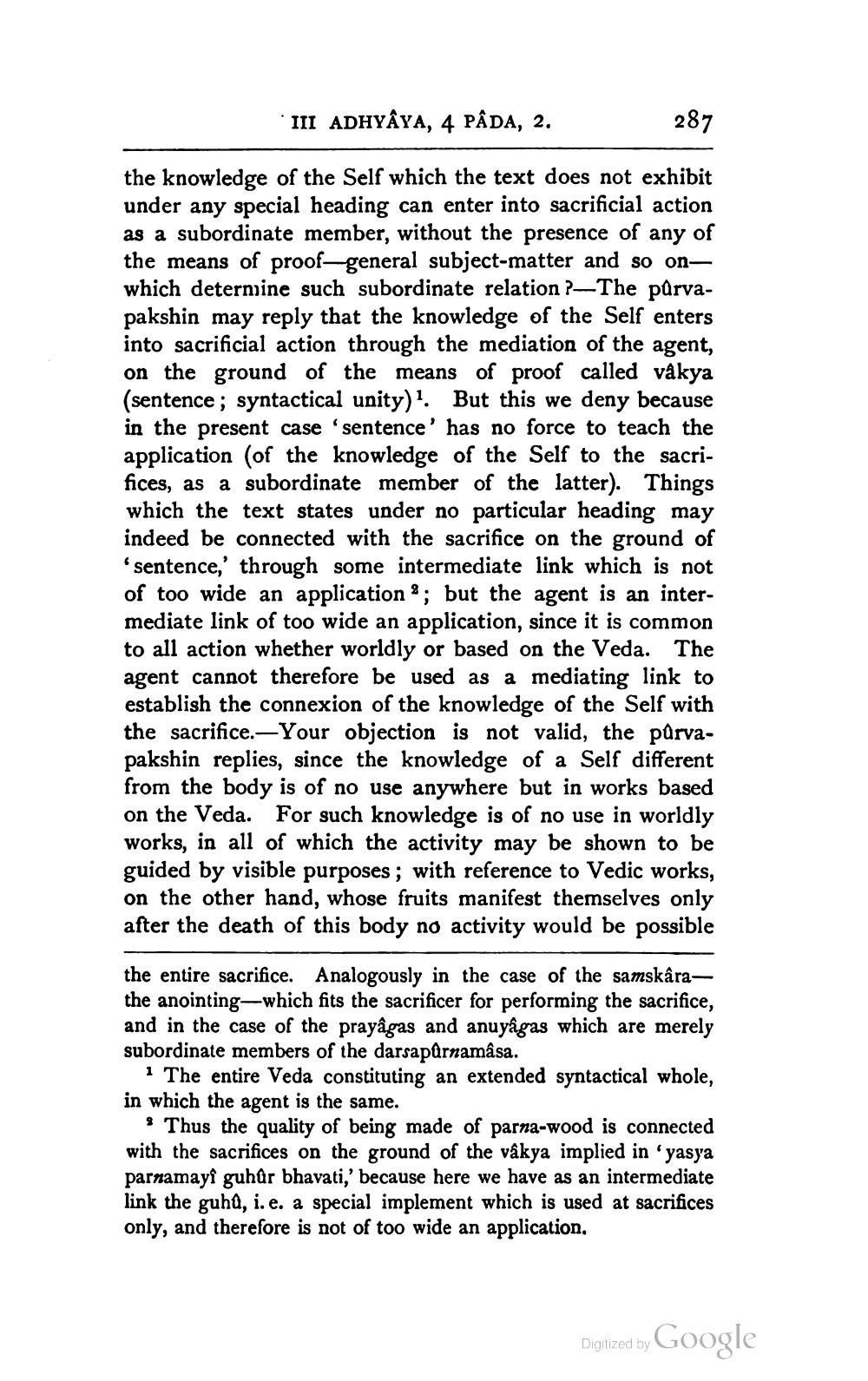________________
III ADHYAYA, 4 PÂDA, 2.
287
the knowledge of the Self which the text does not exhibit under any special heading can enter into sacrificial action as a subordinate member, without the presence of any of the means of proof-general subject-matter and so onwhich determine such subordinate relation ?-The purvapakshin may reply that the knowledge of the Self enters into sacrificial action through the mediation of the agent, on the ground of the means of proof called våkya (sentence; syntactical unity)1. But this we deny because in the present case sentence' has no force to teach the application (of the knowledge of the Self to the sacrifices, as a subordinate member of the latter). Things which the text states under no particular heading may indeed be connected with the sacrifice on the ground of 'sentence,' through some intermediate link which is not of too wide an application; but the agent is an intermediate link of too wide an application, since it is common to all action whether worldly or based on the Veda. The agent cannot therefore be used as a mediating link to establish the connexion of the knowledge of the Self with the sacrifice. Your objection is not valid, the pûrvapakshin replies, since the knowledge of a Self different from the body is of no use anywhere but in works based on the Veda. For such knowledge is of no use in worldly works, in all of which the activity may be shown to be guided by visible purposes; with reference to Vedic works, on the other hand, whose fruits manifest themselves only after the death of this body no activity would be possible
the entire sacrifice. Analogously in the case of the samskârathe anointing-which fits the sacrificer for performing the sacrifice, and in the case of the prayâgas and anuyâgas which are merely subordinate members of the darsapurnamâsa.
1 The entire Veda constituting an extended syntactical whole, in which the agent is the same.
Thus the quality of being made of parna-wood is connected with the sacrifices on the ground of the vâkya implied in 'yasya parnamayî guhûr bhavati,' because here we have as an intermediate link the guhû, i. e. a special implement which is used at sacrifices only, and therefore is not of too wide an application.
Google
Digitized by




